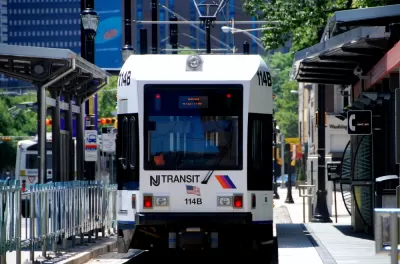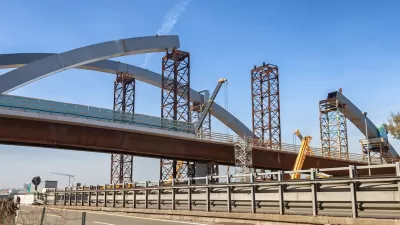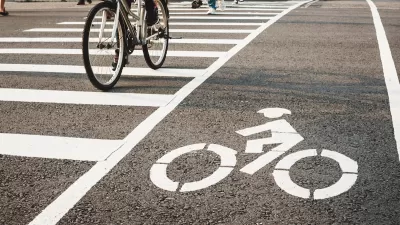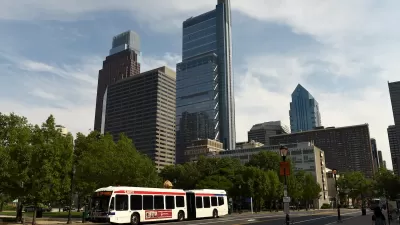The $2.4 billion in New Jersey Transportation Trust Fund Authority bonds will fund infrastructure upgrades, including potential improvements for NJ Transit, which has had a summer of service disruptions, fare and tax hikes, and budget woes.

New Jersey is expected to sell $2.4 billion of bonds held by the state’s Transportation Trust Fund Authority to pay for infrastructure upgrades, reports Nikita Biryukov for the New Jersey Monitor. Of that $2.4 billion, $1.3 will be transportation system bonds and roughly $1.1 billion will be transportation program bonds. The article does not say how the state intends to spend the cash but reports that the fund “is charged with modernizing statewide transportation infrastructure like highways and bridges as well as providing additional capital funding for NJ Transit — New Jersey’s public transit agency.”
“The deal comes after NJ Transit was riddled with a spate of cancellations and massive delays earlier this summer, prompting an investigation into its rail infrastructure,” though the cause of the service disruptions has not yet been identified, according to the article. Yesterday marked the announcement of a fare-free week through September 2 as a thank-you to riders for their loyalty, which drew mixed reactions so close to recent 15-percent fare hikes.
The agency approved a $3 billion operating budget in July, as well as $1.7 billion in capital spending for the 2025 fiscal year, according to another New Jersey Monitor article published last month. The operating budget includes the last $750 million of the $4.4 billion in federal COVID relief dollars. “The loss of those funds creates a roughly $767 million fiscal cliff in the agency’s next budget that lawmakers expect to fill with collections from a new corporate business surtax they enacted in late June,” Biryukov reported in July.
NJ Transit isn’t the only transportation agency facing significant budget gaps as the pandemic-era federal aid runs out and ridership rates continue to recover. Planetizen has reported on a few facing fiscal cliffs, including New York, Chicago, Philadelphia, and the states of Maryland and California, as well as other challenges like staffing shortages that threaten service.
FULL STORY: NJ Lines Up $2.4 Billion Muni Bond Sale for Transportation Fixes

Planetizen Federal Action Tracker
A weekly monitor of how Trump’s orders and actions are impacting planners and planning in America.

Congressman Proposes Bill to Rename DC Metro “Trump Train”
The Make Autorail Great Again Act would withhold federal funding to the system until the Washington Metropolitan Area Transit Authority (WMATA), rebrands as the Washington Metropolitan Authority for Greater Access (WMAGA).

The Simple Legislative Tool Transforming Vacant Downtowns
In California, Michigan and Georgia, an easy win is bringing dollars — and delight — back to city centers.

In These Cities, Most New Housing is Under 441 Square Feet
With loosened restrictions on “micro-housing,” tiny units now make up as much as 66% of newly constructed housing.

Albuquerque’s Microtransit: A Planner’s Answer to Food Access Gaps
New microtransit vans in Albuquerque aim to close food access gaps by linking low-income areas to grocery stores, cutting travel times by 30 percent and offering planners a scalable model for equity-focused transit.

This City Will Pay You to Meet Your Neighbors
A North Kansas City grant program offers up to $400 for residents to throw neighborhood block parties.
Urban Design for Planners 1: Software Tools
This six-course series explores essential urban design concepts using open source software and equips planners with the tools they need to participate fully in the urban design process.
Planning for Universal Design
Learn the tools for implementing Universal Design in planning regulations.
Smith Gee Studio
City of Charlotte
City of Camden Redevelopment Agency
City of Astoria
Transportation Research & Education Center (TREC) at Portland State University
US High Speed Rail Association
City of Camden Redevelopment Agency
Municipality of Princeton (NJ)





























